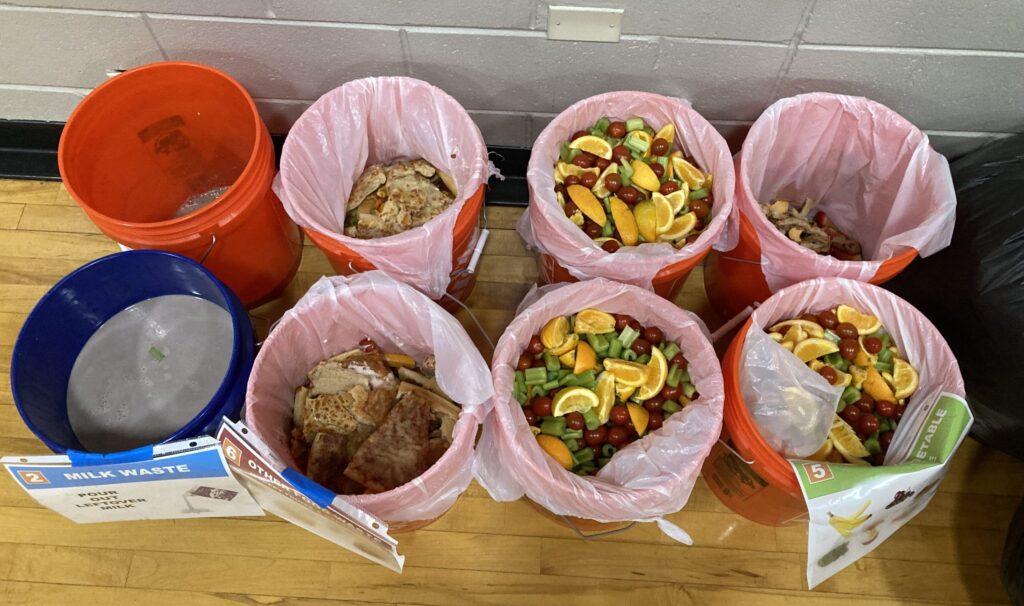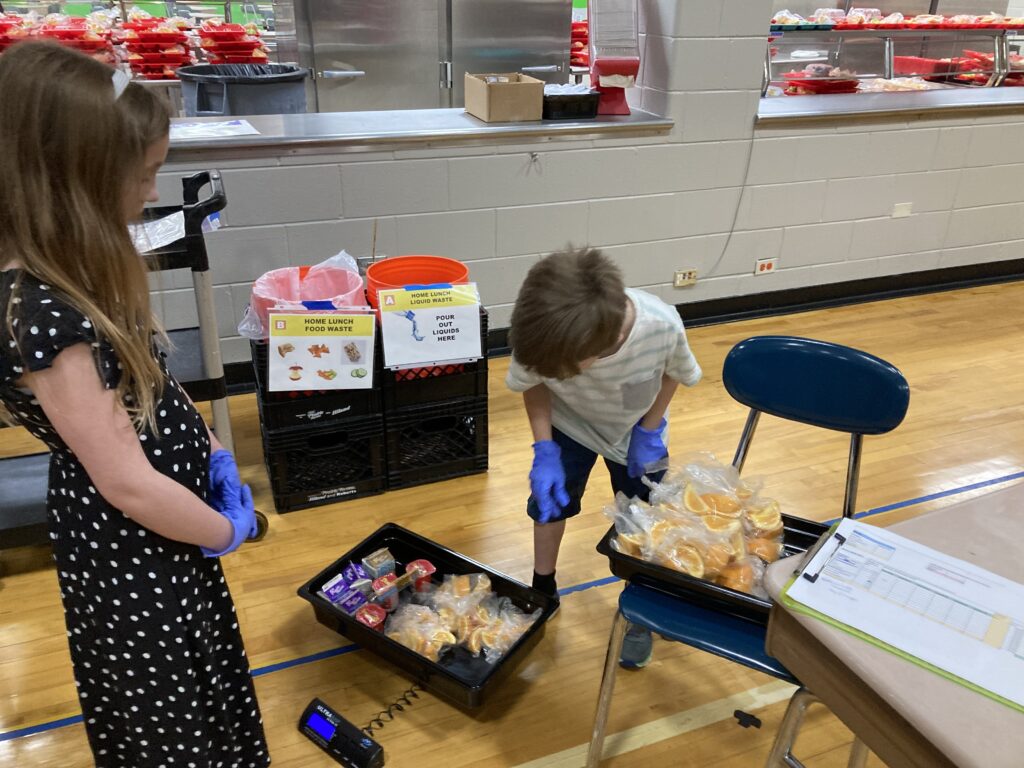
“I wish we could do this food separating everyday – it was easy,” remarked a student as they stood in front of a long row of 5-gallon buckets filled to the brim with uneaten food from lunch. While the students’ can-do spirit made the task look easy, they were hard at work collecting valuable data for a lunchroom food waste audit at their school.
Student teams at Conley Elementary School and Martin Elementary School in Huntley Community School District 158 (Huntley 158) each dedicated a part of a school day in May 2022 to conduct the audits, which were part of a collaboration between Seven Generations Ahead’s Zero Waste Schools team and the district’s Food Service Director, Richard Reed.
“We are always looking for ways to incorporate sustainable practices that meet the needs of our students, community, and environment,” Reed shared. Since food waste audits are an effective way for schools to identify the most impactful food waste reduction strategies, Reed thought they would be a great next step for the district. The audits were conducted as part of World Wildlife Fund’s Food Waste Warriors Project, a program for K-12 schools that provides grants and educational resources to help schools take action on the issue of food waste. The data collected from Huntley 158 will be added to WWF’s national database for food waste in schools.
On the day of each audit, students sorted their leftover school lunch materials into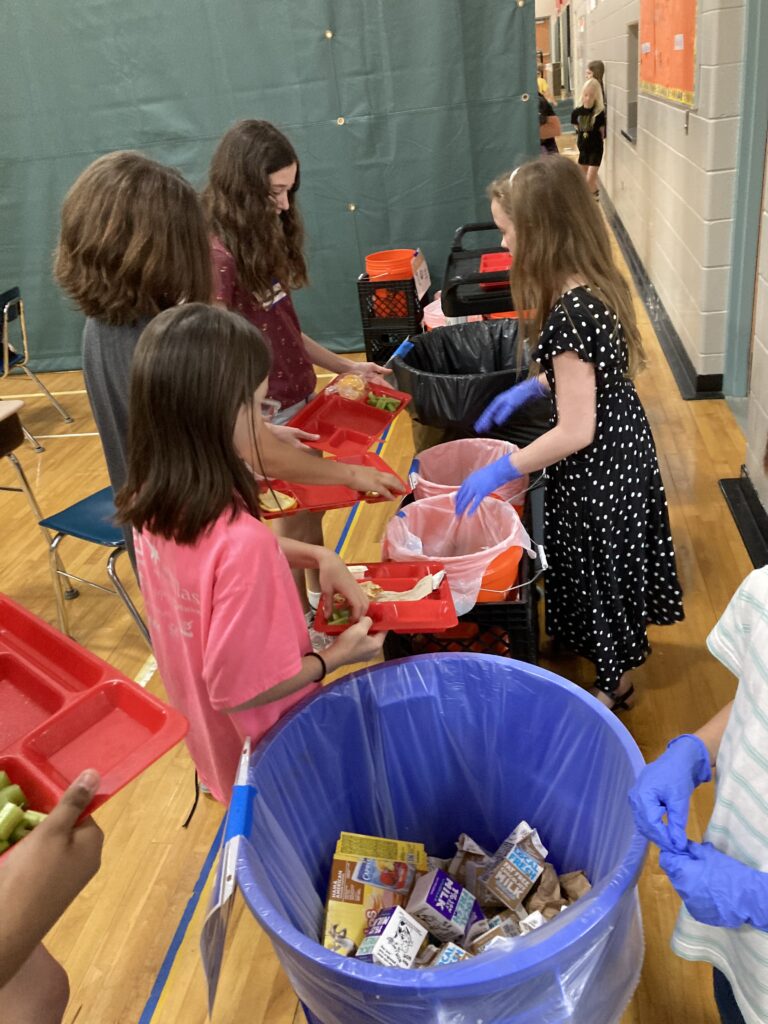 the following categories: share table items, milk/juice waste, fruit and vegetable waste, other food waste, recycling, and landfill trash, as well as categories for food and liquid waste from lunches brought from home.
the following categories: share table items, milk/juice waste, fruit and vegetable waste, other food waste, recycling, and landfill trash, as well as categories for food and liquid waste from lunches brought from home.
At Conley, a school with about 540 students in grades 3-5, a total of 236 pounds of lunch materials were sorted and weighed. Of this, 46% of all materials (109 pounds) was wasted food/liquid and another 40% (95 pounds) was food recovered through share tables.
At Martin, a school serving about 720 students in grades 3-5, a total of 356 pounds of materials were measured. Of this, 65% of all materials (231 pounds) was wasted food/liquid and another 25% (89 pounds) was food recovered through share tables.
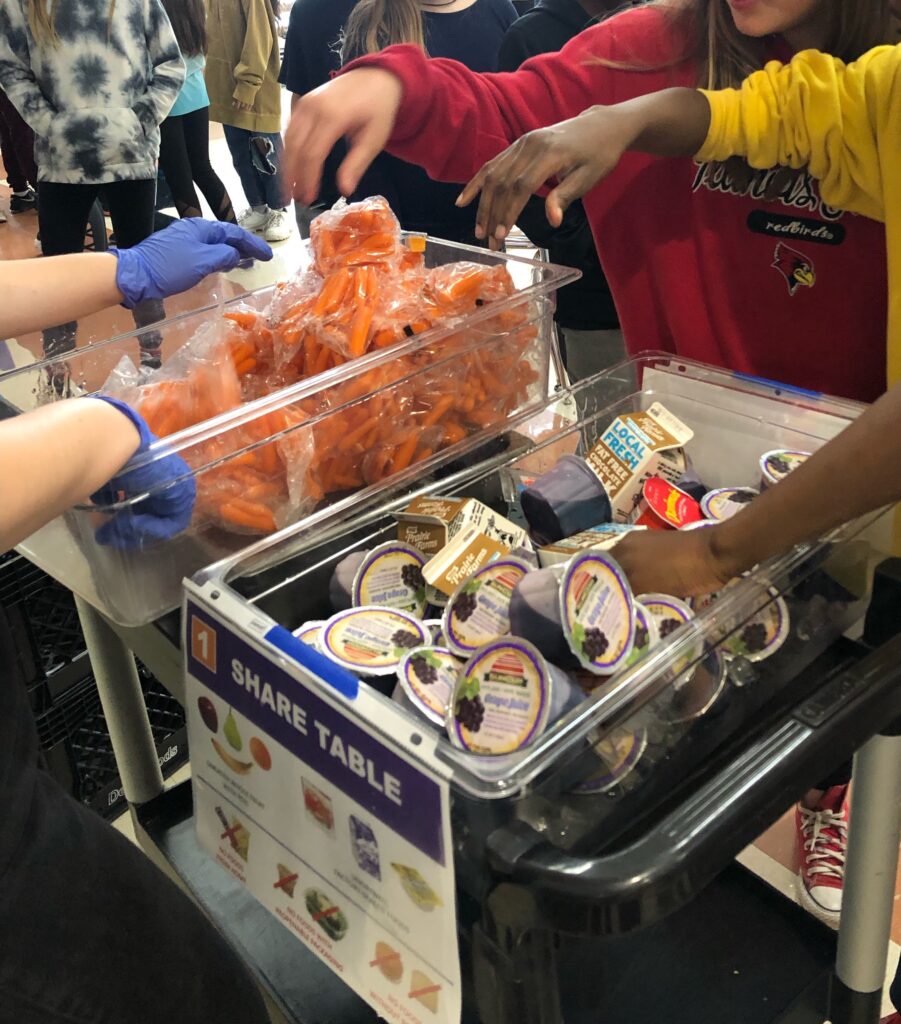 The audit data also supports Reed’s plan to introduce recycling and commercial composting to all district elementary schools. “The data collected gives us real measurements to quantify the need to separate our recycling from the landfill,” said Reed. “Just by taking out the liquids and recyclable cartons, bottles, and boxes we cut our landfill usage in half. This is a great start…commercial composting will cut that landfill amount by approximately another 25%. This is our goal.” To put this in perspective, if Conley and Martin had share tables, recycling, and commercial composting in place already, 92% and 94% of all lunchroom waste would have been diverted from the landfill, respectively, on the days of their waste audits.
The audit data also supports Reed’s plan to introduce recycling and commercial composting to all district elementary schools. “The data collected gives us real measurements to quantify the need to separate our recycling from the landfill,” said Reed. “Just by taking out the liquids and recyclable cartons, bottles, and boxes we cut our landfill usage in half. This is a great start…commercial composting will cut that landfill amount by approximately another 25%. This is our goal.” To put this in perspective, if Conley and Martin had share tables, recycling, and commercial composting in place already, 92% and 94% of all lunchroom waste would have been diverted from the landfill, respectively, on the days of their waste audits.
Share tables are a way for schools to recover and redistribute uneaten items served as part of the school meal, preventing them from being wasted. Eligible items in Huntley 158 include unopened, factory-sealed foods like milk cartons and bags of sliced oranges, as well as whole fruit with a peel. According to Reed, Huntley 158 operated share tables in all 5 of its elementary schools prior to the pandemic; the practice was restarted this year at Conley and Martin. The food waste audits will help Reed demonstrate that share tables are an effective way to prevent food waste and also have the potential to save the district money, and he plans to bring them back to all 5 elementary schools next year.
World Wildlife Fund’s report, Food Waste Warriors: A deep dive into food waste in US schools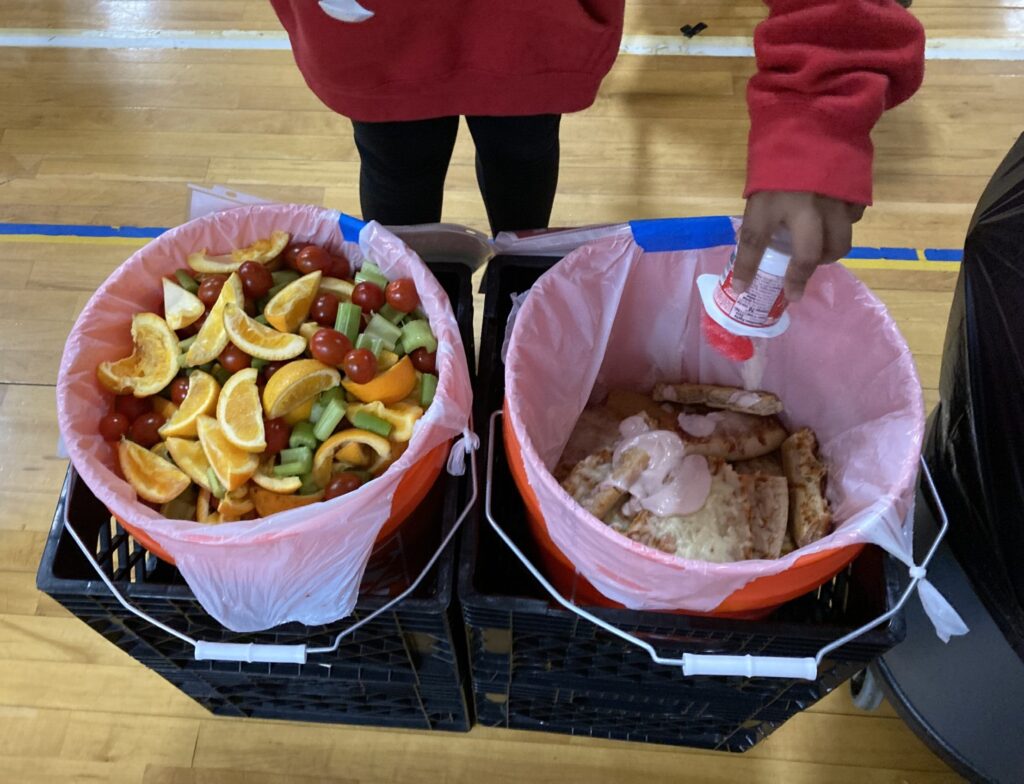 , found that school districts waste approximately 530,000 tons of food per year nationally (excluding milk). Wasting food wastes the water, energy, and wildlife habitat that went into producing and transporting that food. Food waste also contributes to climate change: ReFED estimated that uneaten food in K-12 schools contributed to nearly 3 million metric tons of greenhouse gas emissions in 2019.
, found that school districts waste approximately 530,000 tons of food per year nationally (excluding milk). Wasting food wastes the water, energy, and wildlife habitat that went into producing and transporting that food. Food waste also contributes to climate change: ReFED estimated that uneaten food in K-12 schools contributed to nearly 3 million metric tons of greenhouse gas emissions in 2019.
Measuring and reducing food waste in schools, and engaging students in the process, is key to addressing the larger problem of food waste and can mean enormous benefits for our environment. SGA is grateful for fantastic partners like Reed and the student Food Waste Warriors in Huntley 158 for taking action on food waste, and we hope students and staff at other schools are inspired by their efforts.
We encourage anyone interested in learning more about measuring school food waste and strategies for reducing it to check out the Food Waste Reduction Toolkit for Illinois Schools, developed by the Wasted Food Action Alliance and Seven Generations Ahead.
